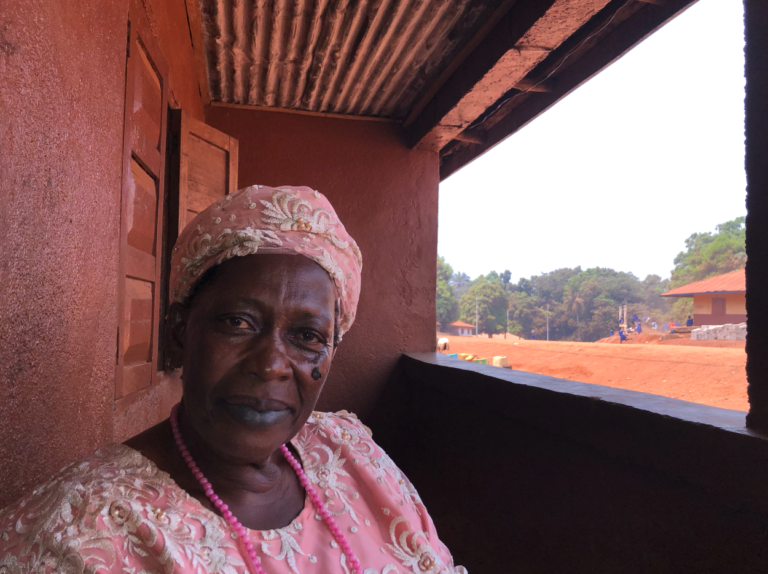BEAR: a verb intrinsically associated to women

Beyond Google Translate
In a remote rural village in northern Sierra Leone, without water, without electricity and obviously without Wi-Fi (even mobile coverage was low!), a tiny young woman told me that she had ‘bear’. The translator told me that ‘bear’ in Krio meant courage and patience and determination, all in just one word. Hearing the woman’s story, I could get the sense of what she meant.
Krio is a “fascinating mix of English, African, Portuguese, French and other influences, reflecting a unique history of imperialism, slavery and migration.” Unfortunately, it is not one of the languages in Google Translate and there are no online dictionaries. I was told that it is common for translators to create their own interpretations of Krio words when doing instant translations, like the one I had during this conversations with the young women.
The word stayed in my mind… ‘BEAR’… I kept wondering, where has the word come from? Is it related to the animal bear? If so, does the word encapsulate the characteristics of the animal?
Back home and now with access to internet, I googled the word and voilà! The verb ‘to bear’ in English actually has all the qualities the young lady was telling me she had.
‘bear verb’
Back home and now with access to the internet, I googled the word and voilà!
The verb ‘to bear’ in English actually has all the qualities the young lady was telling me she had.
The definition of ‘to bear’ goes even further than what I initially associated the word with.
- to accept, tolerate, or endure something, especially something unpleasant – at the same time it could also mean: to be too unpleasant or frightening to think about;
- to have or continue to have something;
- to hold or support something;
- to give birth to young, or (of a tree or plant) to give or produce fruit or flowers;
- to carry and move something to a place;
- to change direction slightly so that you are going in a particular direction;
- bear testimony/witness; and
- Its idiom phrases include ‘bear fruit’ and ‘bear the scars’.
Celebrating the ‘bear’ in each one of us
In the same village, I talked with a female elder (the one in the photo). Again, her story showed various signs that she had ‘to bear’ a lot of things in her life to carry on. For me, her photo says more than a thousand words.
Recently, Brené Brown’s post on courage made me realise how – in our busy Western lives – we get easily disconnected from the root meaning of words. Not only that, we also interpret the words through our cultural lenses. In that sense, after this trip, for me ‘courage’ became much closer to ‘bear’ than to “speak one’s mind by telling all one’s heart”, as Brené argues in her post.
Exploring the etymology of words helps us to strip out our cultural lens and connect to the essence of what they mean. The stories I heard from the women I spoke with taught me that the essence of the word ‘bear’ is definitively intrinsically associated with women.
I wrote this blog to celebrate the ‘bear’ in each one of us – women from all parts of the world who have so many different ways of ‘bearing’ in their lives.